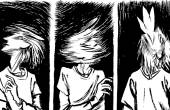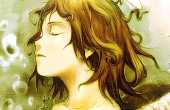M.C. Cherif
A popular culture enthusiast with a passion for research on thought-provoking issues and a keen interest in deep conversations.
Contributor II
- Plebian Penman
- Lurker
- Pssst
- Sharp-Eyed Citizen
- Town Watch
- ?
- Articles
4 - Featured
3 - Comments
50
- Ext. Comments
23 - Processed
17 - Revisions
12
- Topics
8 - Topics Taken
1 - Notes
9
- Topics Proc.
14 - Topics Rev.
5
- Points
1295 - Rank
106 - Score
667
Latest Articles
Latest Topics
The Dark Side of Beauty Standards in Helter SkelterI have been wanting to write an article about the Japanese movie Helter Skelter by referring to the manga that is based upon it. I decided to submit a topic beforehand to see what the Artifice community thinks about it. This movie is unforgettable because it makes the audience realize how ugly it is to go desperately after physical beauty. It is a great lesson about youth, beauty, self-esteem, and ethics. The article is expected to be about the analysis of the main character Ririko, the way the plot evolves, and how other minor but important characters contribute to delivering the message that obsessively seeking outer beauty is a toxic behavior. Since the movie is about models, focusing on the fashion industry as the concerned context would be appropriate. However, this phenomenon of having certain beauty criteria on social media is becoming a lot more common nowadays and it is causing a lot of mental health issues particularly among teenagers and young adults. Connecting the ideas generated in this film to a real contemporary problem would also be interesting to provide interpretation and discussion of the analysis.
|
The History of Chinese PaintingThe Artifice is a magazine about visual arts so it would be interesting to read an article about how art in China has been evolving since ancient times. The author is invited to focus on the history of painting in this specific cultural context and make it into a story that helps the reader explore different times through the lens of Chiense painters. Using a chronological order would be helpful to follow and making the tone narrative instead of informative would also be more engaging. As an oil painter, I would be intrigued to read something related to the origins of this particular painting type. |
Analyzing The Concept of Unforgiveness in Hell GirlJigoku Shojo or Hell Girl is an anime that deeply explores anecdotes of people holding grudges against each other and sending the perpetrator to hell for multiple reasons, sometimes even for what seems like trivial reasons. For instance, a school girl chooses to send her bullies to hell thanks to the website from which Hell Girl appears and invites her to pull the string off a Voodoo doll. Hell Girl gives all her clients the free will to decide whether to pull that string or not, i.e. the choice to send them to hell or not. As such, this is a depiction of how humans carry emotions like hate and resentment within their heart when they go through some kind of unfairness. The show does not only include victims choosing to send their enemies to hell though. It also involves characters misunderstanding situations and misjudging someone as causing some sort of disturbance and they send them to hell while they are innocent. This entails how humans' sense of justice can be distorted due to many factors. This anime is thought-provoking in that occultic elements and events can be analyzed to investigate how they work towards the representation of human unforgiving tendencies against the ones who they feel have wronged them. An interpretation can also be made to invoke spiritual beliefs on the theme of forgiveness as in how not forgiving someone eventually leads the victim to hell as well. From this, a discussion can be developed about the meaning of real forgiveness beyond the anime.
|
How Contagion Predicted the Covid-19 PandemicA film analysis of the 2011 movie Contagion and how it accurately represented the hit of the Corona virus. This can be done by intricately comparing and contrasting the plot to reality. For example, how the outbreak of the virus started in China and the theory of it originating from the bat. Other similarities can be mentioned like the way it spread in the world, mass hysteria, the war on vaccines, and fake news about a so-called medicine that can cure the virus. One can refer back to website articles and videos discussing this topic. An interpretation of why and how this film anticipated such a worldwide disaster can be intriguing to evoke at the end of the article.
|
What We Can Learn from Survival Game ShowsThere are multiple manga with similar themes or genres related to survival games, i.e. games in which characters are playing to save their own lives. These manga include titles like Judge, Doubt, Gantz, Alice in Borderland, Online: the Comic, Youkai Ningen, and the list goes on and on. The mere fact that these types of manga are pervasive and common shows that Japanese artists are expressing a phenomenon, whether consciously or unconsciously, that is deeply rooted in their society or culture. Since these games are morbid and involve deadly rules, they are most likely critiquing a negative aspect of their socio-cultural upbringing. This is most probably connected to the pressure that they have to conform to their community's rules and if they choose to be different, they have to endure the judgemental reactions of others. The fact that more death game shows are being adapted to live-action movies and series like Squide Game, Alice in Borderland, and Escape room demonstrates that this is a hot topic that is worthy of attention and consideration. Escape Room being an American movie shows that this is becoming a worldwide issue. The world is now becoming aware of how people must accept differences and how this is putting some people's life on the line when, say, they commit suicide or live a life full of struggles and battles because of simply choosing to be different. Another issue to consider in these shows is that they depict the controlling nature of humans who would dare to commit these massacres if they had this technological power of designing death games. Another point to analyze is that relationships can become like a game with some people. Some choose to unite and fight together, others betray and manipulate to get to where they want, others fight alone and do not trust anyone. This is exactly how life works and how people treat each other in a realistic way. However, when people are at their worst, in this case enduring a survival situation, the real self of each individual is manifested. Whether they choose to betray, sacrifice themselves out of love, work alone, or build a community are all acts of survival and depict the true nature of humans who make different decisions in a survival situation. This is a universal matter and all humans from any culture are unpredictable in these types of situations, which makes it fascinating to explore how they react when they are at their worst.
|
What We Can Learn from Time Travel ShowsWhile time travel works are entertaining and interesting, one would still wonder what the audience can learn from these kinds of shows. The idea of going back in time or travelling to the future is appealing to humans because they know they can control time with this power, i.e. the forced events brought upon by the universe. Yet, we know that time travel is practically impossible and even if it were, it would be extremely dangerous as it messes with the forces of nature. Thus, what is the purpose of creating stories that portray the possibility of such a phenomenon? works including "The Time Machine," "Doctor Who," "Back to the Future," "Steins;Gate," "Life Is Strange," etc. can be mentioned to illustrate with examples. |
The Representation of Art in "The Sculptor"Scott McCloud's graphic novel "The Sculptor" gained recognition for its art and plot. "It was the best graphic novel I've read in years" were Neil Gaiman's words to describe how much it is a good read. The events pivot around the protagonist David Smith who was granted the power to turn anything he imagines into reality through sculpture. That was, however, only made possible when Death manifested itself in the form of his uncle Harry to tell him that he will, in return, have just 200 days to live. As the comic book was published in 2015, it could be assumed that it questions the position of art in modern society. Considering the capitalist lifestyle in the American society, McCloud seeks to criticize how art cannot always be treated as a business and that we should not forget its primary purpose. |
Published | Creativity in Junji Ito's MangaThe art and storytelling in Junji Ito's manga are very original in a peculiar sense. As a researcher interested in the concept of creativity and a fan of Junji Ito, I would be delighted to read an article about what makes Ito's works creative. |
Latest Comments
| Comics in Education: Benefits and attitudes | |
Thank you! | The Dark Side of Beauty Standards in Helter Skelter: A semiotic analysis |
Totally! | The Dark Side of Beauty Standards in Helter Skelter: A semiotic analysis |
Thank YOU! That scene will forever stick with me too. I agree that more people need to watch this movie. It’s beautifully made and heavily symbolic. | The Dark Side of Beauty Standards in Helter Skelter: A semiotic analysis |
Thank you! | The Dark Side of Beauty Standards in Helter Skelter: A semiotic analysis |
I agree! She is a very interesting and unforgettable character. | The Dark Side of Beauty Standards in Helter Skelter: A semiotic analysis |
They serve to describe Ririko’s struggles though. | The Dark Side of Beauty Standards in Helter Skelter: A semiotic analysis |
I love this article! The atomic bomb in anime is another evidence that the Japanese people are still traumatized by the Hiroshima bombing. | The Legacies of the Atomic Bomb in Anime |




Thank you for your comment!